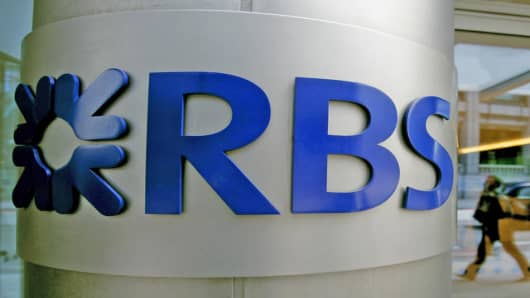"I didn't negotiate, settle or approve Sir Fred Goodwin's departure terms. All those issues were handled by RBS," Myners told the House of Commons Treasury committee.
He said Goodwin had already taken a 3 million pound tax-free advance on the pension.
Myners, a financier who was appointed a minister in October to advise the government on the banking sector, has taken the brunt of the criticism for the payout.
Brown has said the pension was "unjustifiable" and pledged to take legal action to recover some of the money.
But Myners said he had told the bank's directors that there should be no rewards for failure and that payments to departing executives should be minimized.
Goodwin resigned as chief executive in November as RBS ran into severe difficulties and had to be propped up with 20 billion pounds in public money.
The uproar over his pension blew up last month as RBS reported a full-year loss of 24.1 billion pounds, far and away the largest in British history.
Directors bent over backwards to be generous, Myners said, even giving Goodwin the choice of taking his full pension at the age of 60 or at 50.
"I think one would have had to have been a monkey in that situation to have spent a great deal of time deciding which of those choices to take," Myners said.
"Someone in RBS took the decision to treat him more favorably than was required," Myners added.
"This decision was completely at odds with the principles that the government made clear to RBS and expected them to follow." RBS could have fired Goodwin instead and owed him a year's pay, Myners said.
Slideshow: The World's Safest Banks
Myners said that an RBS director, Robert Scott, had told him: "The pension will be enormous, you know that."
However, Myners said, neither Scott nor Sir Tom McKillop, then the bank chairman, told him that the board intended to exercise its discretion to allow Goodwin to draw his full pension at age 50.


